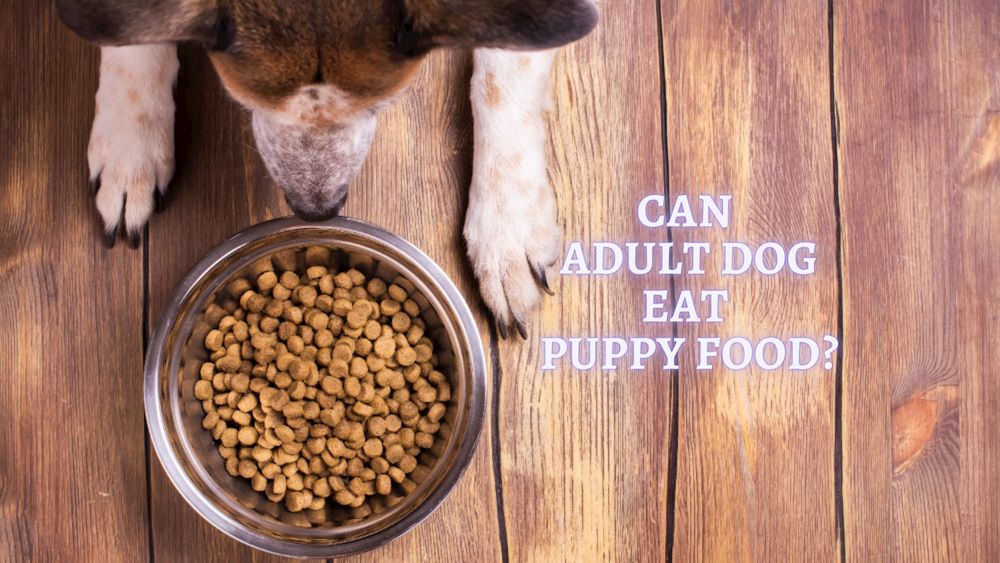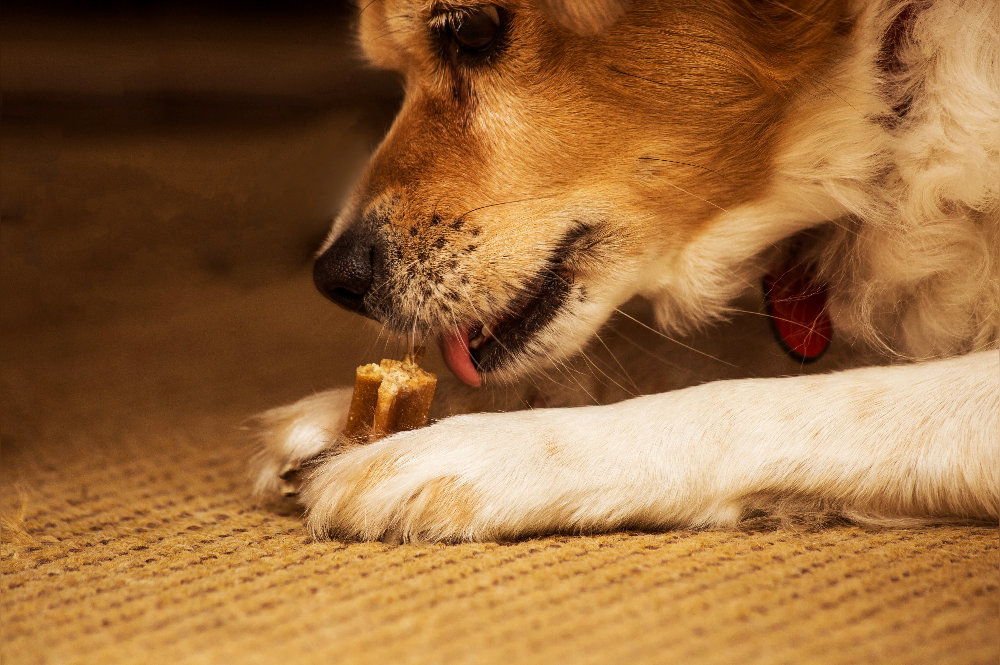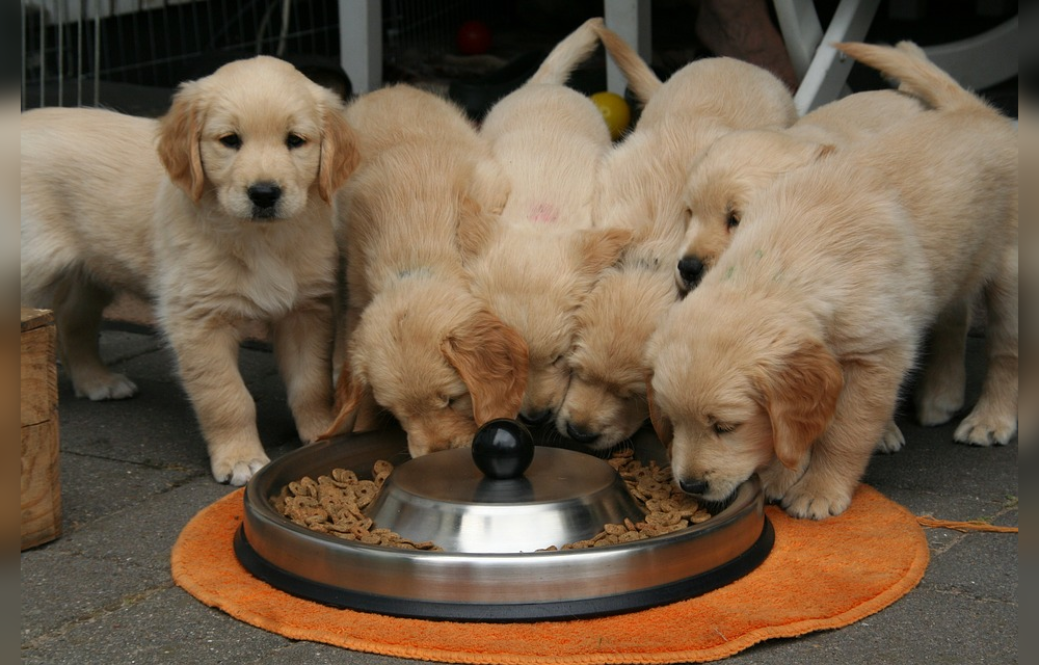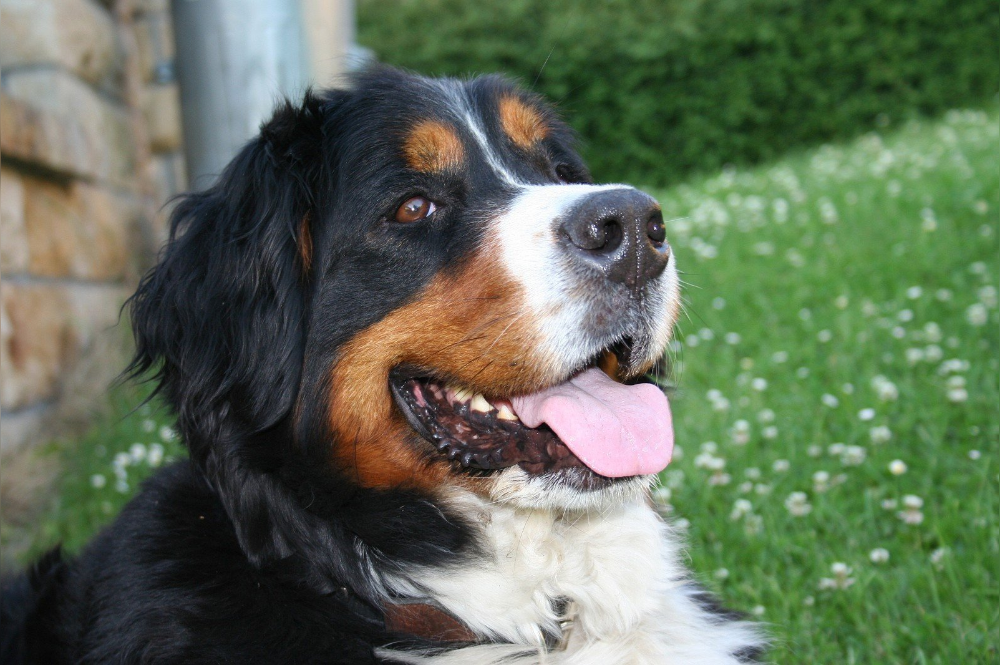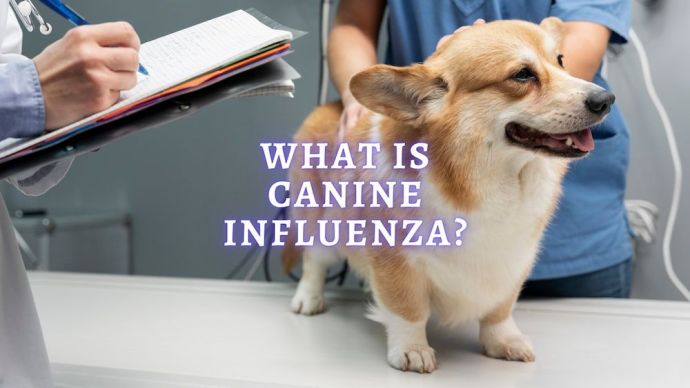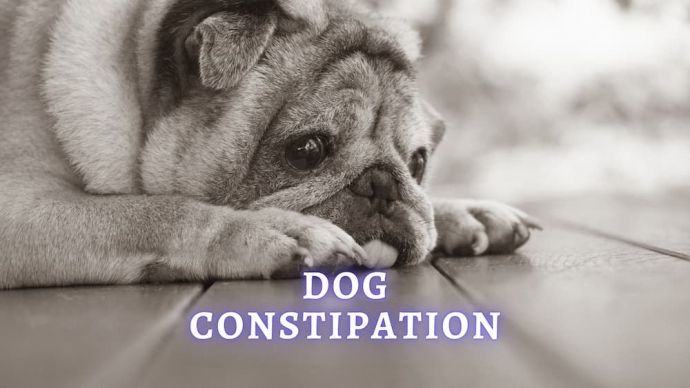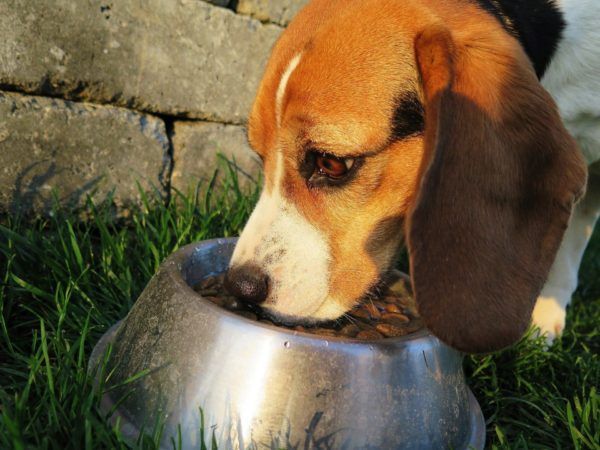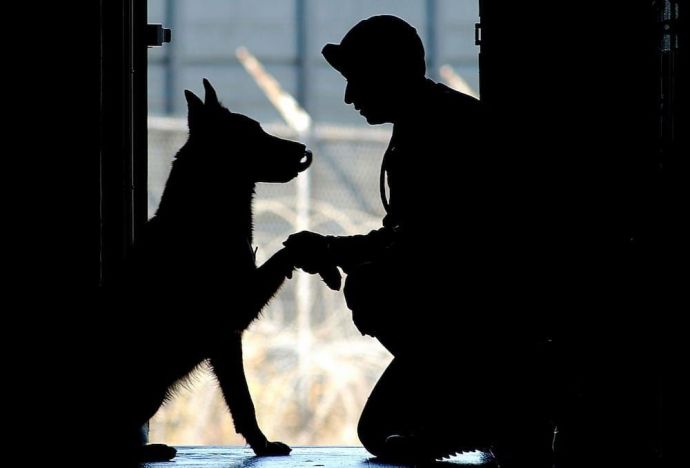Can Adult Dogs eat Puppy Food?
Written by:
Author: Scott Jeffrey
Scott is a professional blogger with 12+ years of experience in writing, and holds an MA in anthropology. He has two cats as housemates. Also, Scott is passionate to research on pet-related topics such as dog training, puppy feeding, and cat health.
View all 63 articlesLearn about our editorial process and veterinary review board.
Reviewed by:
Veterinary review
by Dr. Sara Ochoa
Dr. Sara Redding Ochoa is a veterinarian with many years of experience and higher education. During her time in veterinary school she was able to learn form some of the most well-known veterinarians from all over the world. Sara lives happily with her husband Greg and her babies Ruby the schnoodle, and Bam-Bam her bunny. Dr. Sara Redding Ochoa has a passion and love for animals that makes her a wonderful asset to our team.
View all 13 articlesLearn about our veterinary review board
Viewed: 7622
Updated on: 02/03/2021
Different varieties of food for canines are often designed to meet the nutritional needs that a dog has at each stage of life. Certain dogs can be fussy, and older dogs may even demand the same puppy food they have been eating in their earlier stages.
Commercials that meals that are designed for the animals the first year of life usually come with enhanced vitamins, minerals, and nutrients to make sure that a puppy grow much more efficiently. With access to the extra calories and nutrients, dogs can quickly gather all of the essentials that they need to grow in size.
Using puppy food can be especially important if you have a large breed dog or for puppies in their earliest stages of life. Puppy kibble is formulated to fuel an animal that’s going to be growing. They’re often extremely high in calories, and when dogs reach their full size, it can be tough to regulate the calories that they are getting on these types of meals.
Is it bad to feed an Older Dog Puppy Food?
It’s not necessarily bad to feed an older pet puppy meal. Is this type of food is designed to help an animal grow, it may be hard to handle weight control if an older dog is regularly requesting puppy food.
An easy way to start the process of switching begins with slowly mixing in a new type of meal with your adult dog. Making a choice to gradually mix in a ratio of adult dog food with puppy meal will help to make sure that your pet can lower its calories and slowly work at transitioning onto meal that’s much more age-appropriate.
Older dogs receiving puppy foods can be especially damaging. Adult pets in their senior years can run into a series of kidney problems and obesity problems. The diets of the senior dog are often designed to be very low in calories as well as low in protein. Higher levels of protein can place extra stress on the kidneys, and these are precisely the types of nutrients that you able often find in puppy meal.
When a senior animal has access to extra protein and the extra calories that can be found in puppy meal, it’s easy for them to put weight on and to also exacerbate some of the symptoms that are associated with kidney problems. It could be dangerous for an older dog to eat puppy food regularly, so if you have a new dog in the house that is on puppy meal, it could be wise to keep that older dog away from the food.
The meal varieties that are formulated for adult pets often have a different type of protein balance, and they are controlled with their calorie count to ensure that there is less of a chance for canine obesity. Many meal producers also have a series of adjustments that can introduce ingredients that are raw, grain-free, allergen-free, and more.
Puppy food is typically produced using a set type of ingredients, and this can quickly throw off the diet of an adult dog and cause a series of flareups in health problems such as obesity.
Can Puppy Food Cause diarrhea in older dogs?
If an older animal happens to get a hold of some puppy food, this can lead to the chance that there could be some problems with their digestion. Changing over any type of meal in dogs can often come with the risk of diarrhea. If you’re trying to wean your dog on to adult meal from the puppy food, it’s best not to do it all at once. Making a choice to mix in a bit of the new meal with puppy meal and working to slowly wean your pet off the diet might be important.
It’s not an absolute emergency; if your pet gets a hold of puppy food, it can make their stomach upset for the first time, but by taking a slow transition, it’s possible to avoid adult dogs getting diarrhea as a result of eating this food.
The best analogy for puppy meal versus adulthood is that puppy meal can often be like junk food. Eating a lot of junk food for humans can often cause digestive problems, the same can be said for dogs. With the high levels of calories that can be found in puppy food, an adult pet is likely to enjoy the taste, but eating too much of it can lead to digestive issues.
Feeding your puppy meal once or twice shouldn’t be a problem if it’s the only available food. Feeding your dog puppy food as a regular meal source could be a problem over time. Your pet might likely experience some type of stomach discomfort over a few days when they switch back to adult meal too.
When should you switch your Dog to Senior Food?
Understanding when it’s time to switch your pet over to senior food means knowing when your dog has officially become a senior. There is no absolute age at which a dog can be considered a senior animal. Depending on the size, breed, and weight, the numbers can really vary. Pets are known for larger sizes like great Danes often have shorter life expectancies, and this can mean that they could reach the status of the senior dog around the age of five or six. Smaller breeds often live much longer, and this could mean that if you have a beagle or schnauzer that it would reach senior status at eight or nine.
Many pets may seem extremely healthy and active within these age ranges but their bodies and their nutritional needs begin to change at this time. Switching over to senior food can often be a wise choice for pet owners as it can help to minimize aging conditions in dogs. Some of the earliest signs of aging in dogs that could suggest it’s time for seniors’ food are large weight loss or gain, bad breath, excessive drooling, vision problems and more.
As your pets continue to get older, there are also a number of signs of aging that include geriatric behavior like difficulties with their normal sleep pattern, osteoarthritis, impaired mobility, increasing urination, a loss in muscle mass, altered behavior and memory loss.
Getting your pet on senior meal before these geriatric symptoms occur can help prevent these symptoms and lessen the severity of the symptoms when they crop up.
Senior food can help protect your dog’s future by adding improved digestibility, softer textures to fight off dental diseases, improved supplementation for joints and mobility, and nutritional adjustments that can control weight. Many senior foods also include a variety of supplements that can assist with the aging process and pets. Senior meals can also be improved with omega-3’s, antioxidants and MCTs for your pet.
Making the choice to switch her dog over to senior food can often be a great idea for preventing a wide range of diseases and health problems in their later lives. Speaking to your vet about senior meal can let you know when it may be time to switch.
Be sure to wean your pet onto new senior food when making the switch and you can work at controlling your dogs’ diet for optimal health at any age!
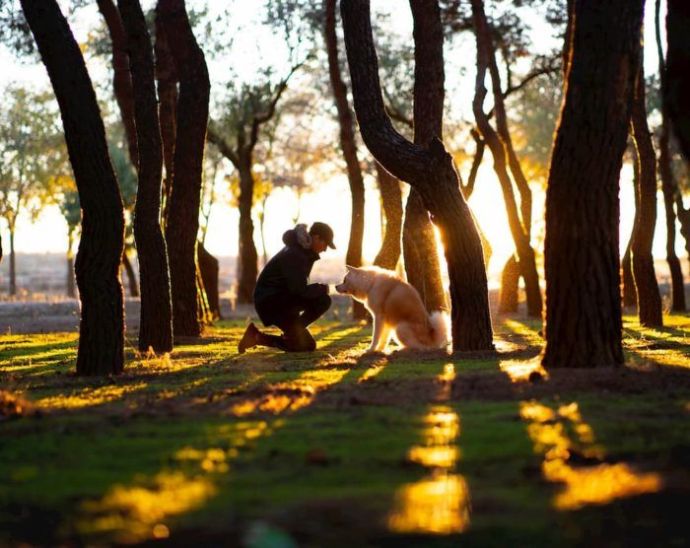 Dog Care Am I Ready to Be a Dog Parent? 7 Things to Consider Before Getting a Puppy
Dog Care Am I Ready to Be a Dog Parent? 7 Things to Consider Before Getting a Puppy - 221
- 0
 Dog Care Why Does My Dog Lick The Air? Health and Behavior Reasons for Dog Licking Air and How to Stop It
Dog Care Why Does My Dog Lick The Air? Health and Behavior Reasons for Dog Licking Air and How to Stop It - 117
- 0
 Dog Veterinary Tips Why is my Dog throwing up: Causes and Preventing (Veterinary Advice)
Dog Veterinary Tips Why is my Dog throwing up: Causes and Preventing (Veterinary Advice) - 21800
- 5
 Dog Care My Dog Keeps Scratching His Mouth: Reasons Why Your Dog Scratching Face
Dog Care My Dog Keeps Scratching His Mouth: Reasons Why Your Dog Scratching Face - 17168
- 1
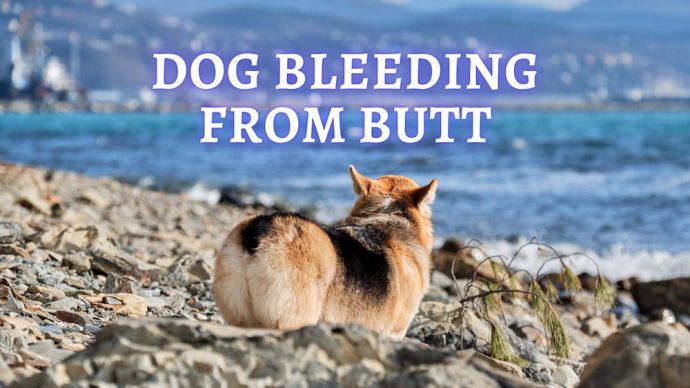 Dog Care Why Is My Dog Bleeding From Its Butt? Causes and treatment of rectal bleeding in the dog
Dog Care Why Is My Dog Bleeding From Its Butt? Causes and treatment of rectal bleeding in the dog - 15102
- 0









